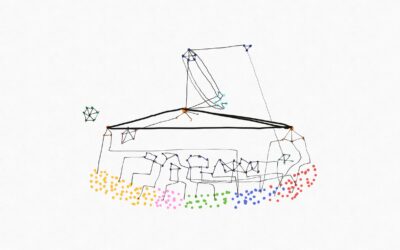Scholars and practitioners have widely explored and utilized the leadership concepts originating from Niccolò Machiavelli’s sixteenth-century political theory, applying them to the context of contemporary leadership. While his primary focus was on political leadership, many of Machiavellian principles can be adapted to various modern leadership scenarios.
Machiavellian leaders continue to shape society in the complex 21st century, albeit in various ways. The renowned Renaissance political theorist, Machiavelli, strongly emphasized the rational pursuit of power. He also favoured the cunning and deceptive measures needed to maintain the power. The essence of Machiavellianism is evident in certain political figures today who prioritize personal interests and power retention. Above all else. These leaders adopt a calculated approach, exploiting divisions, manipulating public opinion, and prioritizing present needs over future concerns. Their actions often demonstrate a willingness to forsake moral principles, with the focus being on personal ambition and power consolidation.
The presence of Machiavellian leaders in the twenty-first century raises critical issues about the interplay between power, morality, and the impact of their actions on the societies they govern.
This Italian diplomat, philosopher, and writer wrote an early 16th-century political treatise, ‘The Prince‘ – regarded as one of the most influential works on political theory and a classic text in modern political philosophy. In this piece, Machiavelli argues that the primary objective of a prince, or a ruler, should be to maintain power and stability in the state. Even if it means resorting unethical or immoral tactics. He emphasizes the importance of instilling fear over fostering love, contending that fear is a more effective means of control. Machiavelli also advocates for rulers to prepare to resort to violence, deceit, and manipulation to preserve their power. He champions the belief that the end justifies the means.
Modern Machiavellian Leaders Of The World
1. Vladimir Putin

Considered by some as a Machiavellian leader, Putin’s use of force to secure power, his efforts in shaping a favorable public image, and manipulation of public opinion through propaganda and disinformation have drawn parallels with Machiavellian strategies. This comparison is subjective and widely debated. Putin’s leadership, often compared to Machiavellian tactics, displays power consolidation, realism, and a practical approach. His application of force in Crimea and Eastern Ukraine exemplifies determination and fearlessness. At the same time, his influence on information through state-run media underscores his control over public sentiment.
2. Margaret Thatcher
A prominent figure in British history, Thatcher served as the UK Prime Minister from 1979 to 1990. Her assertive and decisive leadership style, focus on power and control, and contentious policies embody aspects of Machiavellianism. Her manipulation of information and overcoming of political hurdles were key to her leadership. However, labelling her leadership solely as Machiavellian oversimplifies a complex leadership style influenced by a variety of factors. Thatcher’s Machiavellian tendencies shone through in her ruthless pursuit of her goals, as evidenced by her handling of the Falklands War.

3. Indira Gandhi

She was known for her authoritative rule, use of emergency powers, and strong public image. In this way, her leadership exhibited aspects of Machiavellianism. Her critics accused her of leveraging propaganda and media manipulation to consolidate her power. Her decision-making often prioritized practical considerations over moral or ideological concerns. However, labeling her leadership style as entirely Machiavellian is an oversimplification given the various factors and contexts influencing it. Her controversial imposition of a state of emergency from 1975 to 1977 and her populist policies, such as bank nationalization and the Garibi Hatao (Eradicate Poverty) program, reflect her pragmatic approach to leadership.
4. Narendra Modi
India’s Prime Minister, Modi, known for his charismatic persona, emphasis on nationalism, and focus on economic progress, has displayed aspects of Machiavellian leadership. His autocratic tendencies, suppression of opposition, and divisive speeches have been criticized. Centralizing power within the Bharatiya Janata Party (BJP) and his government, and manipulating media narratives, are among the key aspects of his Machiavellian approach. Critics have also accused him of political opportunism, citing his handling of the Gujarat riots in 2002.

5. Lee Kuan Yew

Lee’s authoritarian leadership style, focus on economic growth, and readiness to adopt stringent measures to preserve social order and political stability mark him as a Machiavellian leader. He is widely acknowledged for transforming Singapore from a developing to an affluent nation. However, perceptions about the alignment of his leadership style with Machiavellian principles can vary. Critics have pointed out his control over media and information flow as a Machiavellian strategy. His long-term vision for Singapore’s growth and his implementation of policies supporting social stability and economic prosperity align with Machiavellian ideals of planning and leadership.
It’s crucial to note that labelling a leader as Machiavellian is subjective and depends on context and perspective. One must examine their philosophies, tactics, and operating environment. Identifying contemporary leaders who fully embody Machiavellian views is challenging as many employ specific strategies while rejecting others. The historical setting in which Machiavelli wrote is also significantly different from today’s environment. While some leaders are praised for their Machiavellian tactics, others are criticized for their perceived unethical or immoral behavior.
The Changing Face Of Machiavellian Leadership
In exploring the role of Machiavellian leaders in the 21st century, my aim is to shed light on the relevance and necessity of these principles for present-day leaders. It has become apparent that many influential leaders in our time possess certain characteristics associated with Machiavellianism. While this may initially seem alarming, I have come to recognize the pragmatic value of these principles in navigating the complexities of modern world.
Take, for instance, a political leader who strategically manages alliances and navigates diplomatic negotiations to secure advantageous outcomes for their country. This leader understands the importance of maintaining power and influence in a highly competitive global arena. They acknowledge that achieving their objectives often requires making difficult choices, even if it means compromising or employing tactics that could be perceived as sly or manipulative.
In the business sphere, a successful CEO might demonstrate Machiavellian traits. By adeptly managing stakeholders, crafting persuasive narratives, and seizing opportunities in the market. These leaders understand the necessity of assertiveness and calculated decision-making to stay ahead in a cut-throat environment.
By acknowledging the presence of Machiavellian principles in our contemporary leaders, I am not advocating unethical behaviour. Neither am I endorsing the abandonment of moral values. Instead, I am recognizing that the complexities of our world demand leaders who possess strategic thinking and the ability to navigate intricate power dynamics.
In examining the influence of Machiavellian-ism in the 21st century, I hope to provoke a thoughtful discussion on the balance between pragmatism and ethics in leadership. It is essential to critically assess the actions and consequences of leaders who embody these principles, considering both their potential benefits and the possible risks they pose to societal well-being.
Conclusion
Thus, I believe Machiavellian principles are crucial for effective leadership in today’s complex world, as they enable leaders to navigate alliances, make difficult decisions, and adapt to changing circumstances. Acknowledging these traits can challenge the delicate balance between virtuous intentions and pragmatic actions in governance. Exploring the blurred lines between Machiavellianism and leadership can provide a deeper understanding of power dynamics and the qualities we value in current leaders. By questioning the qualities we truly value in our leaders, we can better navigate the complex landscape of power dynamics and political landscapes.




0 Comments
Trackbacks/Pingbacks